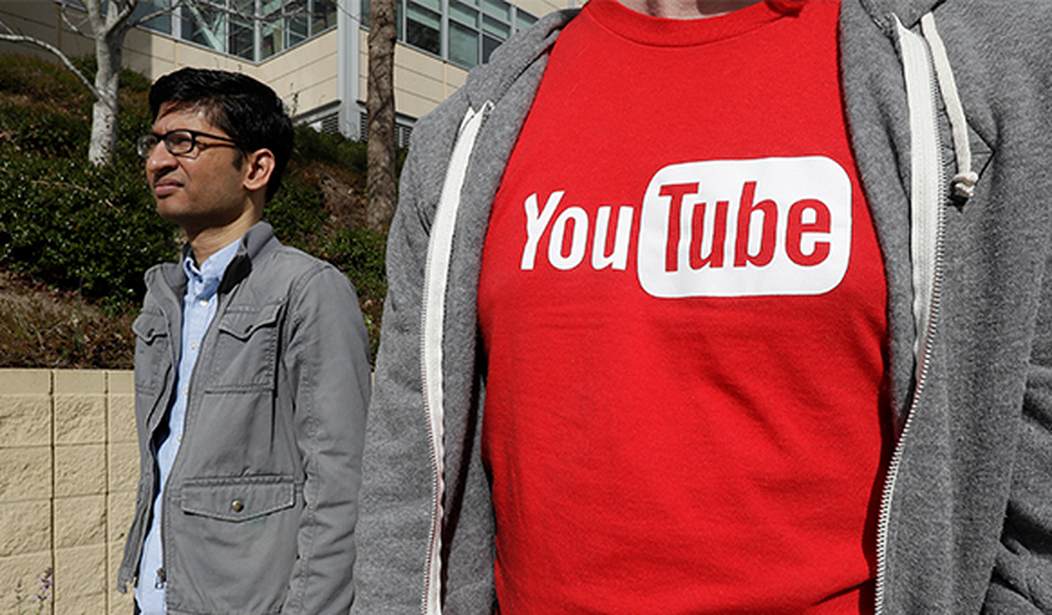As I have reported previously at PJ Media, YouTube recently adopted a new censorship regime predicated on the edicts of the World Health Organization regarding designations of “misinformation” vs. actual information.
“As medical information — and misinformation — continuously evolves, YouTube needs a policy framework that holds up in the long term, and preserves the important balance of removing egregiously harmful content while ensuring space for debate and discussion,” according to YouTube‘s announcement of its new “misinformation” “policy framework,” a euphemism for “censorship regime.”
“Moving forward, YouTube will streamline dozens of our existing medical misinformation guidelines to fall under three categories — Prevention, Treatment, and Denial. These policies will apply to specific health conditions, treatments, and substances where content contradicts local health authorities or the World Health Organization (WHO),” it continues.
Related: YouTube Adopts WHO ‘Medical Misinformation’ Censorship Regime
Prominent naturopath Dr. Eric Berg, with 11 million subscribers on YouTube, explains here how the new “medical misinformation” policy has affected his standing on the platform.
Dr. Berg, according to his own accounting, has 928 videos pertaining to the ketogenic, or keto, diet, an eating protocol that severely limits the intake of carbohydrates to achieve a state of ketosis, which is the burning of fat as the primary fuel source for the body rather than glucose.
Yet when you search YouTube for “keto diet,” none of Berg’s hundreds of videos — even though he has 11 million subscribers and many of them (like this one) have views in the millions, show up in the search results. Instead, the viewer is treated to a barrage of mostly hysterical videos with lesser view counts warning of the dangers of the keto diet.
Try it for yourself.
While limiting carb intake, especially simple carbs, is sage advice, I’m not actually sold on long-term keto being a net positive for all people. But that’s neither here nor there.
I have learned an awful lot of valuable information from Dr. Berg over the years. Like any savvy consumer of information — which we all should strive to be and which our institutions would encourage us to be, were they actually looking out for our interests — I do not take anything that Berg or anyone else says as gospel truth.
I glean a bit of valuable insight from his channel and then look for other sources that corroborate or dispute his claims. That’s how functional adults grapple with new information presented to them.
Instead, under the care of the nanny state, we are exhorted to turn our critical thinking skills off and mindlessly “trust the experts.” We ought never to “do our own research,” as Forbes instilled in the American public in the context of COVID-19.
Berg is just one of many social media figures with a non-conventional, non-pharmaceutical orientation providing medical information on the web targeted by the corporate state for censorship in the post-COVID era.
Via Washington Post, September 2021:
YouTube is taking down several video channels associated with high-profile anti-vaccine activists including Joseph Mercola and Robert F. Kennedy Jr., who experts say are partially responsible for helping seed the skepticism that’s contributed to slowing vaccination rates across the country…
The change marks a shift for the social media giant, which streams more than 1 billion hours’ worth of content every day. Like its peers Facebook and Twitter, the company has long resisted policing content too heavily, arguing maintaining an open platform is critical to free speech. But as the companies increasingly come under fire from regulators, lawmakers and regular users for contributing to social ills — including vaccine skepticism — YouTube is again changing policies that it has held onto.










